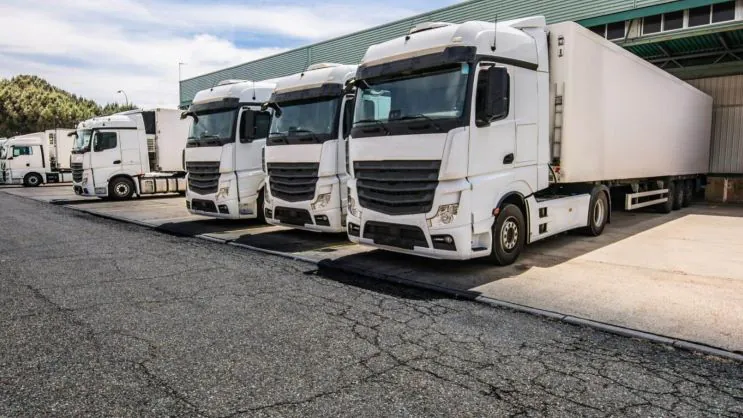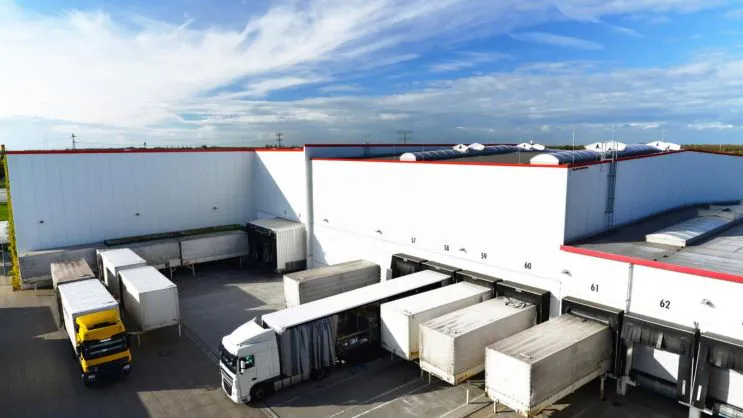Third-Party Logistics (3PL): leverage your business to the next level

In modern logistics, only a few companies can cover the shipping needs extensively throughout the entire supply chain. It is very challenging for small and medium-sized businesses to ship worldwide when they don’t support sea freight or air freight.
However, handling a high number of shipments can be equally tricky for more prominent providers like UPS, FedEx, Ceva Logistics, or DHL Supply Chain, which don’t provide shipping on specific routes or are facing temporary higher demand during picking seasons.
This is where Third-Party Logistics (3PL) helps companies extend their supply chain operations and capabilities so they can better cope with market fluctuations. The reasons why companies are using 3PL are much broader and we’ll explain why in this article.
See what 3PL companies are and how businesses can benefit from them. We’ll also tell you the best solutions for more efficient management of your 3PL, lowering shipping expenses, and delivering overall cost savings. Ready for more? Dive with us into the subject of 3PL services and get to know more about how to cope better with industry challenges.
What is 3rd-Party Logistics?
A 3PL provider specializes in the outsourcing of logistics services, including the management of various aspects of procurement and fulfillment activities. In the business domain, 3PL includes any service contract related to the storage or shipment of goods.
There are several ways in which the term 3PL is described by different sources. Here are three examples from commonly known sources:
- Eyefortransport (EFT), a global leader in business analytics and C-level networking for transportation, states that 3PL provision maintains related business-to-business operations by an independent organization.
- According to Logistics Focus, a 3PL provider is responsible for overseeing all or a significant portion of an organization’s logistics needs, including transportation, inventory management, and sometimes product consolidation.
- The Bridgefield Group defines 3PL as a process in which the owner of the goods (referred to as The Client Company) delegates various aspects of the supply chain to a single 3PL provider. This includes managing inbound freight, customs clearance, warehousing, order fulfillment, distribution, and outbound freight to the client’s customers.
We may classify 3PL services as ranging from individual offerings, such as transportation, warehousing, and distribution, to comprehensive system solutions designed to manage the entire supply chain operations system. Therefore, the subject itself is very broad, and to clarify better, we can share an example below.
3rd-Party Logistics services example
A heavy industry company that manufactures custom components for mining machinery may employ engineers, technicians, and workers for manufacturing operations but may not want to deal with the logistics of consumer orders or the transportation of its products.

Instead, the heavy industry company uses a fulfillment center to process online orders and engages a carrier to transport its goods. This fulfillment center is highly specialized and capable of storing goods weighing more than 50 kilograms (110 pounds) at any storage location in the warehouse.
Both the fulfillment center and the carrier operate as 3PL. Therefore, they must accommodate the incoming and outgoing heavy goods taken from production. One 3PL supplier can also handle both fulfillment and shipping of heavy industry products.

By working with a 3PL provider, a heavy industry company can access delivery and distribution services as needed, effectively managing costs while focusing on its core manufacturing business.
How does 3PL work?
In many cases, 3PL services are a compilation of logistics contracts. The above example from the heavy industry explains how 3PL works, but does not explain exactly what is required for it to function.
Moreover, you still need to know what the principles are of 3PL, how to choose a good service provider, or what features 3PL should provide to a company to meet its needs.

Here, we have outlined the regulations that rule 3PL:
- 3PL is about outsourcing transport and logistics activities to external companies that are not directly involved as consignors or consignees.
- 3PL companies typically involve multiple activities, such as storage, warehousing, and transportation.
- 3PL focuses on providing end-to-end logistics solutions for the entire supply chain.
- 3PL emphasizes supply chain management (SCM) integration and a typical performance measurement framework to improve supply chain relationships and performance.
- 3PL, as a broad term, encompasses freight forwarding or logistics contracts, offering end-to-end supply chain logistics activities with an emphasis on adding value through information and knowledge.
- Many 3PL companies are transforming business operations, expanding logistics capabilities, and integrating various processes, both internal and external.
- 3PL companies provide capacity for a single or limited number of supply chain operations and their functions, such as trucking or warehousing. The scope of that is up to the contract regulations and business requirements.
- 3PL focuses on logistics solutions, optimizing asset combinations from capability providers while maintaining a lower asset intensity.
- 3PL services are increasingly countercyclical and integrate closer with customer operations, making them essential partners rather than just suppliers.
- The top 3PL companies are looking to transform themselves into 4PL to improve service satisfaction, build stronger relationships, and improve customer satisfaction.

What are the categories of 3PL providers in supply chain management?
The subject of 3PL is very broad and it’s difficult to navigate between its definitions. We can outline four categories of 3PL providers:
Standard 3PL providers
These providers offer basic logistics functions such as picking, packing, warehousing, and distribution. For many of these companies, 3PL services are not their primary focus.
Service developers
This type of 3PL provider within supply chain management offers advanced value-added services such as tracking, tracing, cross-docking, specialized packaging, and unique security systems. They can leverage a robust IT infrastructure, focus on economies of scale, and scope to enable them to provide these services.
Customer Adapters
Engaged at the customer’s request, these 3PL providers take complete control of the company’s logistics operations. They can significantly streamline logistics operations without introducing new services as they typically serve a small customer base.

Customer Developers
The best 3PL providers fully integrate with the customer and take responsibility for the entire logistics function. Serving only a few customers, they take on complex logistics tasks. Here is the role of the 3PL customer developers category.
How to choose a 3PL service provider?
These capabilities are also service requirements for the business, which explain how 3PL works. 3PL companies are those that present certain business capabilities. So it is important to choose your partner wisely. By doing this, you can assess these elements:
Technical Competence
- A 3PL service provider should be able to implement and utilize advanced warehouse management systems (WMS) and other technical tools for efficient inventory management.
- A 3PL service provider should possess knowledge of industry-standard technologies and practices for inventory tracking, order processing, and shipment management.
Operational Capabilities
- Proficiency in managing warehouse operations is essential for 3PL service providers. This may include receiving, storage, picking, packing, and shipping.
- The capacity to handle various types of inventory, from perishable goods to hazardous materials, is highly important while working with 3PL service providers to ensure compliance with regulations.
Management Culture
- Commitment to customer satisfaction and better service, with a focus on meeting or exceeding client expectations.
- Flexibility and adaptability to accommodate unique client requirements, changes in demand, or operational needs.
Multi-National Operations with 3PL providers
- 3PL providers should integrate logistics services with value addition and standardized processes across various locations worldwide. They should be able to ship abroad using various shipping modes for freight forwarders, such as airfreight, road freight, intermodal, etc.
- A 3PL provider should leverage the competence available across the network for seamless service and cost-effectiveness for your business. Therefore, you should make revenue from working with 3PL providers.
Local Service 3PL providers
- Companies that don’t see a perspective for growth should consider working with local 3PL providers. They can provide local expertise, understand local laws, operations, and market dynamics.
- Local 3PL providers can deliver better focus, attention, and responsiveness due to being local and being small players.

We have a great example from Avalla, an electronics company, that has implemented our virtual loading system. Avalla handles international shipments from China and needs them shipped to the UK and mainland Europe. Shipping is a significant cost for them as a company, so it’s essential to ensure they do it most efficiently.
Avalla has simplified freight planning for carriers, freight forwarders, and truckers using our virtual load planning platform, EasyCargo. Avalla stated that the software offers a high-quality 3D visual space when loading containers, while most other software only offers a very basic visual space. This, among many other advantages, brings significant value to the 3PL landscape.
What systems should be used to manage third-party logistics services?
Companies should use software systems to better manage their operations with 3PL providers. These systems provide better collaboration between various stakeholders, can help manage shipments, can help manage routes better, and can help improve truck loading capabilities. Companies are extensively using software technology and hardware to improve their operations involving 3PL logistics.
Today, systems for 3PL management should provide this functionality within their software:
Real-time visibility
For 3PL, real-time data visibility is critical. Web portals provided by 3PL companies allow shippers to monitor progress, track inventory, and quickly access reports. Automated systems streamline processes, allowing customers to manage inventory. They can place orders and conveniently access information.
Inventory management and tracking
Warehouse management systems (WMS) in 3PL operations provide seamless tracking and management of goods. Barcode systems improve efficiency and accuracy. This is all possible while radio frequency identification (RFID) technology significantly increases inventory management accuracy, even up to 95% or more at the stock-keeping unit (SKU) level.
Advanced billing system
Integrated shipping procurement software solutions streamline billing processes for 3PL services. These solutions reduce errors and processing time between orders and deliveries. For this purpose, barcode scanners facilitate transaction tracking and enable real-time data for accurate invoicing. They also use Optical Character Recognition (OCR) technology to efficiently scan invoices on the go and enter data into financial systems.

Load planning
3PL providers specialize in load planning for containers and trailers, optimizing space utilization, and ensuring efficient transportation. This solution can be integrated with warehouse management software solutions, facilitating load planning processes. You can easily enhance efficiency and reduce turnaround times while loading shipments and planning your delivery.
Order Fulfillment
3PL providers specialize in order fulfillment services, simplifying operations, and increasing efficiency. Integrated warehouse management software solutions enable seamless order fulfillment across electronic sales channels. These systems use real-time inventory management data to process shipments automatically.
General or niche
3PL providers offer general or specialized solutions tailored to specific industries or markets. General providers provide end-to-end logistics solutions, while niche providers focus on specialized markets such as hazardous materials and heavy industry, such as cold storage.
Integrated software solutions
3PL providers develop custom software solutions to meet their unique needs. For example, companies can integrate procurement platforms with their warehouse’s loading software platform to plan more efficient shipments. Again, this emphasizes efficiency through intuitive design and advanced services on both platforms. These customized and integrated software packages reduce integration downtime as well as improve operational efficiency.
What are the benefits of 3PL?
Economies of scale and scope
- Benefits from large fleets of trucks, warehouses, etc., lead to cost reductions and increased net worth.
- Whether IT-equipped or marketing-based, depends on the type of 3PL provider.
Coordination capability and higher customer satisfaction
- Competent 3PL providers have a high coordination capability, facilitating effective management of inter-firm movement of goods.
- Development through experience as a 3PL provider enables them to find reliable partners or subcontractors.
- Using 3PL can directly lead to improved customer satisfaction through more reliable services.
Cost savings on capital investment
- Outsourcing logistics operations allows companies to save costs on capital investment by reducing the financial risk of enormous lump-sum costs.
- 3PL providers can spread out the risk by outsourcing to subcontractors.

Summary of 3PL service providers
Working with a 3PL provider allows heavy industry companies to streamline logistics operations. By managing costs more effectively, you can focus on core activities in your supply chain network.
By outsourcing fulfillment and shipping tasks to a reliable 3PL partner, various industries, from e-commerce to heavy industry, can access delivery and distribution services tailored to their needs. This benefits companies by ensuring efficient supply chain management.
Companies are using various software solutions to streamline operations in collaboration with 3PL providers. These include procurement platforms, WMS, and, quite significantly these days, load planning software. The latter can substantially lower shipping costs while managing more efficient loading space.
To optimize your logistics operations, you should partner with a trusted 3PL service provider. They can meet your fulfillment and shipping needs, allowing you to focus on what you do best. You can also require their capabilities for effective shipping and load planning.
These elements can deliver more transparency to the business by showing how companies handle costs and fees. Contact us today to learn what benefits our solution is bringing to 3PL companies.




